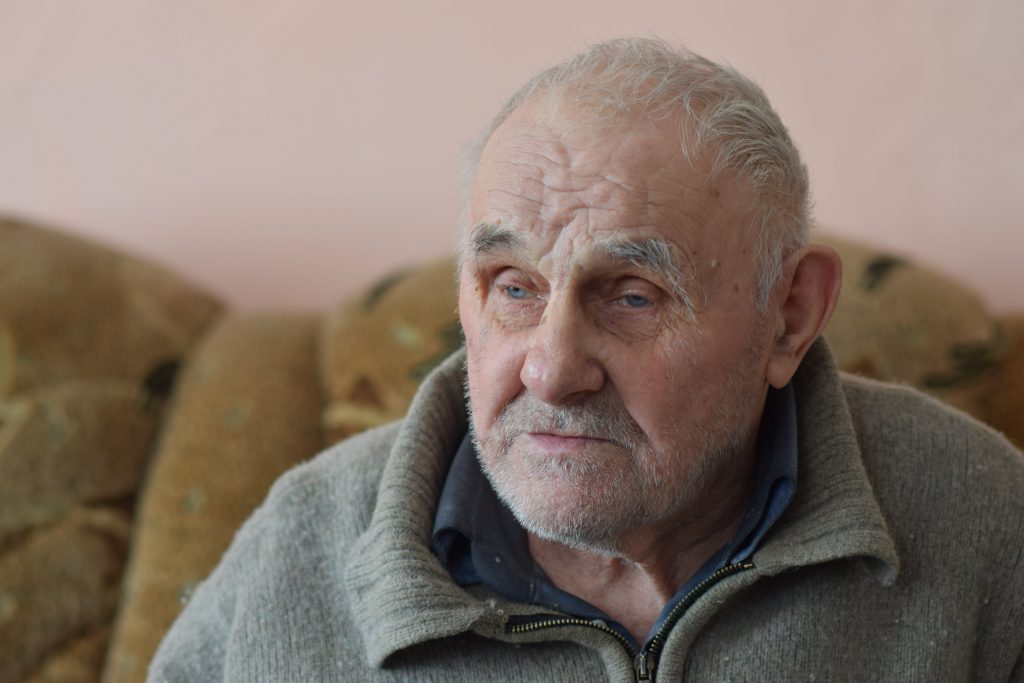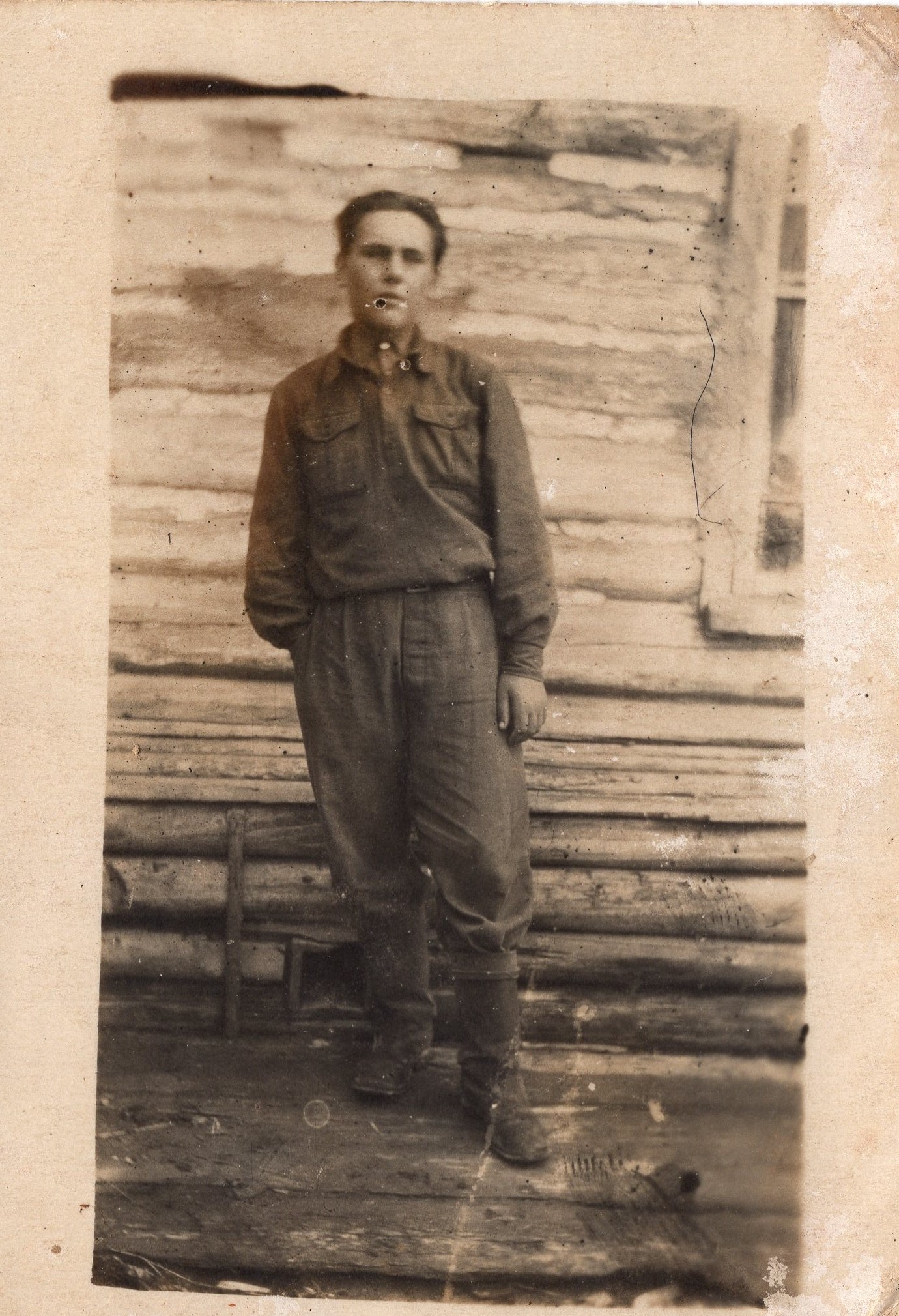Yaroslav Bartoshyk
“They packed us in as if we were some sort of cattle. That was scary”

He was born in 1933 in the village of Zozuli, Zolochiv District of Lviv Oblast, to a family of wealthy peasants. His father was Vasyl Basrtoshyk, and his mother was Anastasiya Bartoshyk. He had two brothers and a sister whom he lost in Siberia, just like his father. The latter spent some time fighting in the Soviet Army and even reached Berlin but was re-settled nevertheless. Yaroslav assumes that most likely the family got into focus of the penal authorities due to his sister Marichka who was helping the guerrillas.
Deportation and transfer
The man recalls that his life under the German occupation was relatively quiet – he was going to school and learning the German language. The radical changes started in 1949, when the family was deported:
“It was 1949, early in the morning, we were all sleeping, when they came in, the Moscovites came in, “Get ready”. And they gave me 2 hours to pack. We were packing for 2 hours. Oh! Dad packed some items that we had in the house, and they didn’t even let us go to the stable. We had a cow, and a horse, and they took them all. And then they brought us in vehicles to Zolochiv, and from Zolochiv we were going by bus, and then, Oh, by train… We spent, I think, a month there, in Lviv. Then they made us board a train from Lviv to Siberia….”

Yaroslav says the transfer was a nightmare – one small window in the entire train car, a shit bin, and getting fed just once a day.
“The train car looked awful inside, you know, these were freight cars, for freight. And they packed people into that train car, and put some panels to make one, two, three levels in these cars, and he had to sleep on these panels. I was sleeping under the very roof, there, on the third level, because they were layering those panels like this, again and again. We were so bunched together, I don’t even know how many of us were there. You know what… They packed us in as if we were some sort of cattle. That was horrible”.
It took approximately a month to get the prisoners to Khabarovsk, and then they were loaded on towed wooden boats to get to Komsomolsk-on-Amur. It was only then when the prisoners were able to get a shower for the first time.
In Siberia, families were accommodated in the barracks where Japanese prisoners used to live; two families had to share one room that did not have any partitions. Kitchens were made of iron. They had to wake up at 5 in the morning to cook breakfast before the working day started. Work was physically exhausting – they were cutting wood with hand saws, chopping wood, taking logs out of snow with shovels, and sometimes they had to work in freezing temperatures below -40C: “I was 16, I was just 16 when I had to go and cut wood together with my Dad. We had very basic tools, like this kind of a hand wood cutter. And we were cutting all that wood by hand.” They were paid [very little] per cubic meter and they had to sign the attendance sheet at the camp commandant’s office every month. That ended only after Stalin died in 1953. However, the deportees were still forced to sign a 3-year contract then, so they only managed to return after 1956.
Life was hard, by the Bartoshyks were gradually making it, got cattle and started farming, although the environment was quite harsh. Later on, Ukrainians were becoming brigadiers and were building small wooden huts, although living conditions were still quite tight.
In Siberia, Yaroslav got married, completed a tractor driving course, and baptised his first son Vasyl. The family had a few more tragedies: his sister died during childbirth, and his father died in an occupational incident.
Yaroslav Bartoshyk only made it back home after 1957 – he initially stayed at his aunt (mother’s sister) and later bought a house and was living a peaceful life, just like his parents had been before the war started. Overall, the journey back home took 20 years of his life.
Recorded by: Andriy Usach
Recorded at: Zozuli, Zolochiv District, Lviv Oblast, Ukraine
Recorded on: September 24, 2019
Contributor: Andriy Voloshyn, operator
Project: “Memory of Ukraine”
Institution: “Territory of Terror”, Memorial Museum of Totalitarian Regimes
Bio prepared by: Olga Mukha
